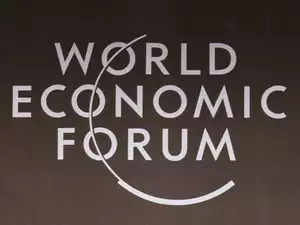
[ad_1]
Blake additionally struck a phrase of warning saying that since markets don’t transfer in a purely linear trend and had been liable to “ups and downs”, there was a necessity to coach traders.
“So this concept of being an knowledgeable investor, a diversified investor, and getting access to academic assets to try this is de facto basic synthetic intelligence (AI),” he stated.
“I believe a mixture of various coverage selections which were made make India fairly a gorgeous funding vacation spot. Along with the digital public infrastructure that creates an enabling surroundings from a technological standpoint, you even have modifications within the chapter legislation and taxation code including readability,” he stated.
Blake stated a survey of fintech CEOs by the WEF and the Cambridge Centre for Various Finance had revealed that 70 per cent of the companies thought of AI as a significant power and may very well be deployed for personalisation and customisation of services.
Blake stated for sectoral regulators, AI may very well be useful within the context of danger administration and there was a necessity for them to adapt to the speedy modifications in know-how. “The sophistication degree of the regulatory authorities will even want to extend commensurate with the enterprise sector and expertise. Know-how, and technologically savvy expertise, will probably be at a premium. And that is true within the non-public sector, and that is true within the public sector,” he stated. Blake stated within the Asia-Pacific area, the regulatory businesses had been typically seen as being fairly skillful.
“Whenever you look globally, clearly there are various ranges of sophistication of markets. This brings a possibility globally to share greatest practices and competencies,” he stated.
“One of many issues that we’re taking a look at is how do you carry probably the most refined actors within the monetary companies house from the non-public sector collectively in a data trade with a few of the key supervisory our bodies,” Blake stated.
“It’s completely in the perfect pursuits of the enterprise sector that their corresponding regulator understands as intently as they do their actions and the applied sciences they’re utilizing to conduct these actions. So, it’s within the mutual greatest curiosity to share that info and to attempt to degree set. That may be a relatively giant problem, but it surely’s one thing that we as a group are taking a look at at the moment and attempting to commit a while to,” Blake stated.
The WEF-Cambridge report on ‘The Way forward for International Fintech: In the direction of Resilient and Inclusive Progress’, launched in January, discovered that almost all of economic know-how firms maintain a constructive view of their regulatory surroundings, with 63 per cent ranking it as satisfactory.
Moreover, 38 per cent of surveyed fintechs cited the regulatory surroundings as a significant supporting issue for his or her operations and development.








